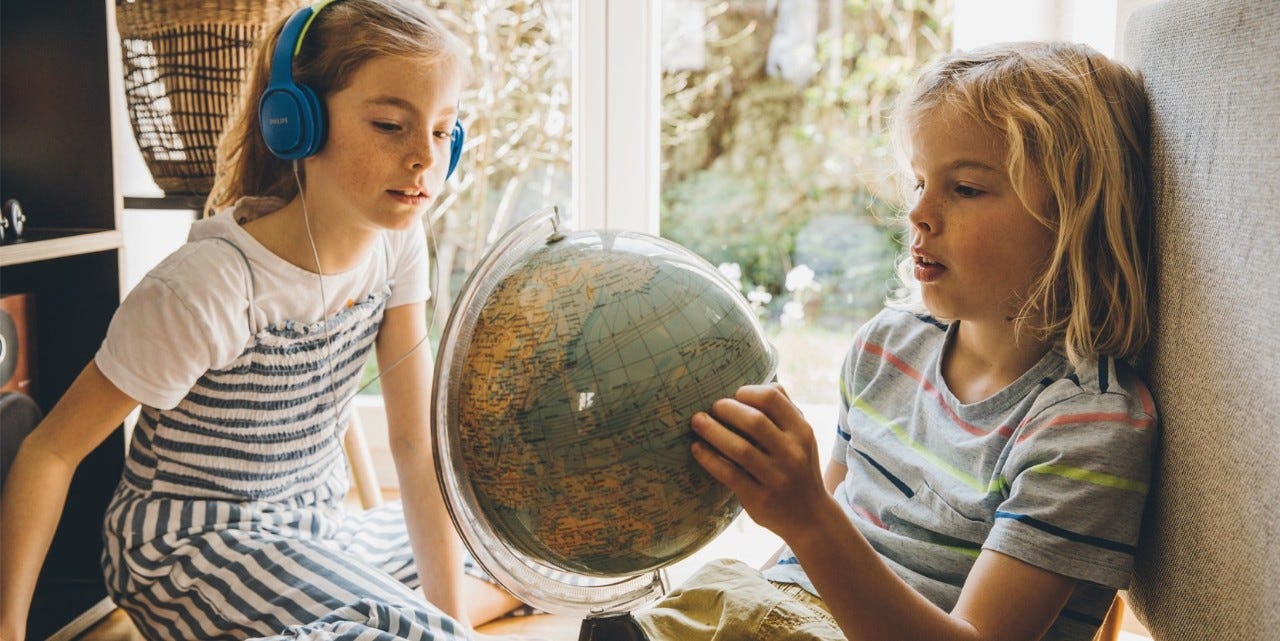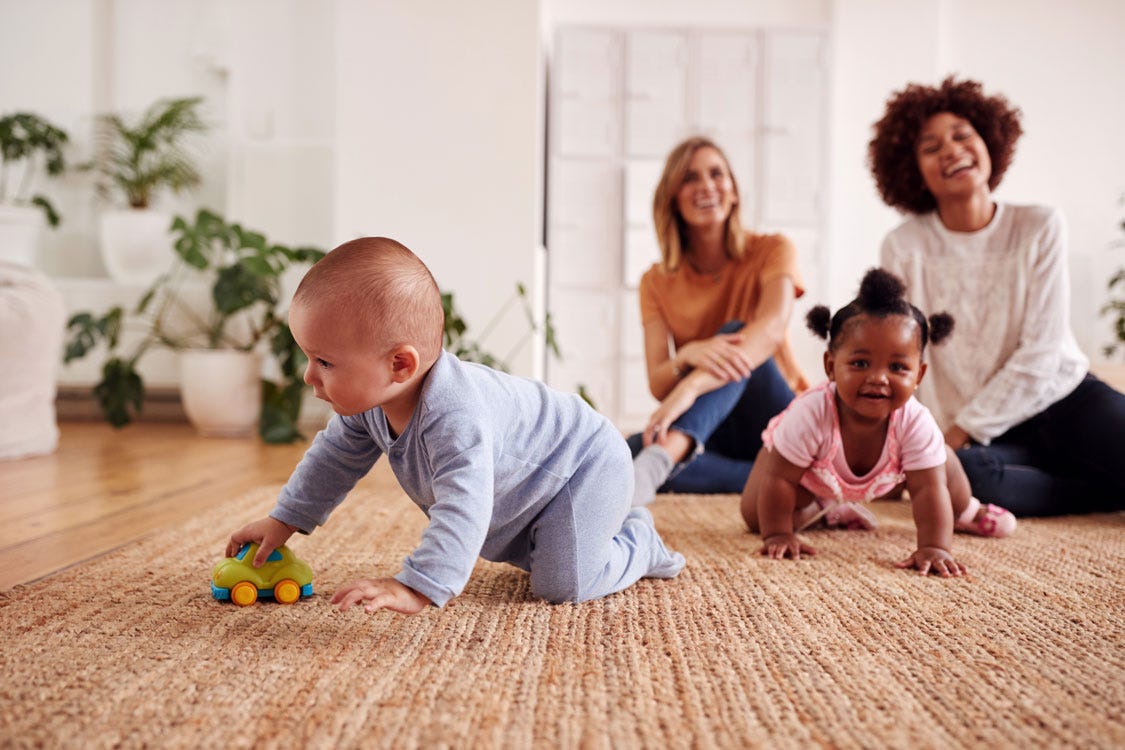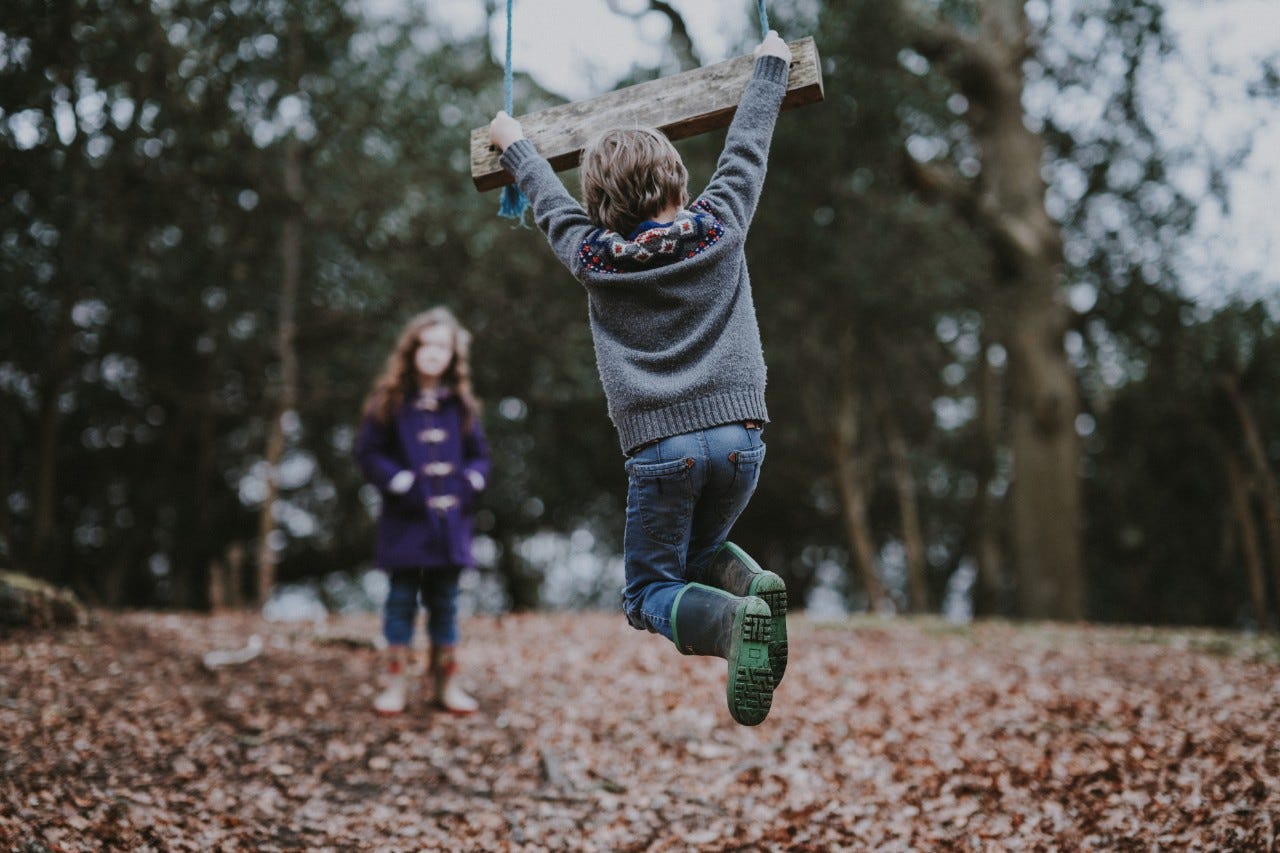What we can learn from children
We can learn a lot from children when it comes to rest and recovery. If you let them, they intuitively take what they need to recover.

It’s April 2020 and we’re experiencing a spring like no other. I’m learning to fear tiny pathogens that go by the deceptively harmless-sounding name of corona and discovered that what we’ve been doing in Switzerland for the last four weeks is called “lockdown”.
I’ve heard the term “social distancing” for the first time and learnt how much it food it takes to feed a family of four exclusively at home.
I’ve discovered that coat pegs are miraculously invisible to children, which is why their coats can always be found on the floor in the hallway.
I’ve also learnt what it’s like for dad, mum and ten-year-old twins to live, work and spend free time together 24 hours a day, seven days a week. And, above all, the sudden proximity and our new, unusually close daily life have forced me to take a closer look at myself,
because I’ve suddenly realised that, when not restricted by the normal everyday routine, my children tick totally differently to me in many ways. Initially it gets on my nerves, but I soon realise there might be something in it.
Looking at it objectively, their rhythm is better than mine in many ways. Often the mood only shifts, because the kids are how I would like to be: calmer, more relaxed, easier-going. Less determined and driven. More intuitive, perhaps even a little more anarchic.
If you let them, they will follow their inner voice - for now. If left to their own devices, kids will follow their intuition – when do we lose this ability? I wonder whether I could learn to be a little bit more relaxed if I study their methods? Or are they just being led by their moods? I lie in wait and look for scientific evidence.
Movement - for the brain
I don’t have to wait long. Even though we’re in lockdown, school work still has to be done and we’ve got lists of tasks for which the teachers have put together mountains of folders and workbooks. So, we’ve scheduled homeschooling for the mornings. The children insist on regular breaks. At 10.30 on the dot each day, the children dash out the door and into the courtyard to play.
Brain researchers would certainly approve of this, as they say that exercise activates the motor cortex, our control centre for coordination in the brain. At the same time, however, activity in the pre-frontal cortex, which is responsible for logical thinking and planning, declines.
This indicates that short bursts of regular exercise give the brain time to relax and recover, which improves concentration and thought processes.
The power of music
On other days, the twins leave their scooters or football in the corner and choose music instead. I’m surprised how big a role music plays in their lives. I like music, but my guitar has been sitting with two broken strings gathering dust for years behind the bedroom door. So this is certainly not something they get from me.
However, it makes neurophysiological sense for my daughter to practise the cello and for my son to put on his headphones, because the music helps them switch off, and afterwards they’re relaxed and ready to go again.
In fact, I find numerous studies on how music affects the brain. For example, in 2006, researchers at Glasgow Caledonian University proved that music increases concentration – provided that you’re listening to music you like.
And you don’t necessarily have to play an instrument yourself. MRI scans showed that the effect on the brain was similar regardless of whether you play or listen to music – the people who took part in the study probably hummed along in their minds. In addition, music stimulates the brain to release large amounts of the neurotransmitter dopamine, which is also considered the happiness hormone. As a result, we feel good, active and relaxed.
We need to take breaks
Breaks are key to learning. An information sheet sent out by the school says that ten-year-olds only need to be able to concentrate in blocks of 20 minutes. How often have I told the kids that they just have to keep their heads down and stick at it when their enthusiasm for a task wanes? This leads to total math blockages, spelling blackouts and careless mistakes.
My research shows that it’s not much different for adults. Although we can concentrate for longer, our body automatically switches to recovery mode for around 20 minutes after 70 to 80 minutes of highly concentrated activity.
So, short proactive breaks are definitely good for recovery, particularly when you determine when you take a break yourself. And it’s even better if you can spend the breaks with people you like.
Seeing friends is like taking a short holiday
During these weeks of social distancing, we’ve experienced first-hand how important interpersonal contact really is. During the lockdown, we’ve formed a closed neighbourhood “bubble” with two families so we can support each other with home office and childcare.
While the children are off seeking companionship, I look for studies – and come across some very interesting findings about how positive interpersonal contact promotes relaxation.
If we surround ourself with people we like and who do us good, it’s like a holiday for our mind and soul. The brain systems that normally drive us, switch off. We leave our plans to one side and enjoy the moment, chat and have fun – with no goals or advance planning.
Learning to forgive
Of course, it’s not always sweetness and light when six children between the ages of five and ten have to get along with one another every day. There are fights. Not as often as you’d expect, but children can be really mean.
Sometimes it affects my son and he gets angry, and there may even be tears, and I worry he’s really had enough of his two friends. But the next day when I ask him if everything’s OK, I get a baffled look and he says, “Why, what happened?”
I fear that holding a grudge for ages is a very adult habit. It takes energy and robs us of precious recovery time. Studies show that bottling anger and irritation up increases the risk of cardiovascular diseases.
A study conducted by Stanford University in California has even shown that participants were healthier and less tense after a course in forgiveness – and even fitter and more optimistic months later.
Be in the moment
While dates, timelines and to-do lists dictate my day, our two young family members often seem to be driven by provocative aimlessness. In the last few weeks, we’ve spent most afternoons in the forest – to keep the kids out of the neighbours’ hair and to give the children more freedom. Just the way there takes up half the afternoon,
collecting sticks, discovering new paths and overcoming obstacles. In the forest, spears are carved carefully, dens built and magic potions brewed. Why? “Because it’s fun”.
Adults would call this mindfulness and we experience something similar by doing a hobby or meditating: being absorbed in an activity and enjoying the moment, without questioning the whys and wherefores.
The effect is measurable: The anterior cingulate cortex, which is an area of the brain behind the forehead, is responsible for controlling our attention and behaviour.
This part of the brain is particularly active in those who meditate a lot and practise mindfulness, and they score particularly highly in terms of concentration. In addition, the amygdala, the place where the fear centre is located, shrinks if we regularly lose ourselves in a task.
By contrast, the hippocampus, which is responsible for our memory functions, seems to grow. So, the next time I’m rushing through the day focused only on my goals, already three steps ahead in my thoughts instead of being in the moment, I’ll follow the kids’ advice to “keep my cool”. I’ve got the message.
- – Exercise contributes to the recovery process and provides the ideal setting for reflection.
- – Music makes you happy and balanced – no matter whether you listen to your favourite band, play an instrument or sing.
- – Incorporate breaks into your routine, at the latest after 80 minutes of focused work. Afterwards, your ability to concentrate increases measurably again.
- – Positive people do you good. This is the best way to forget your worries and to-do lists and enjoy the moment.
- – Freeing yourself of negative feelings and not holding grudges improves your recovery.
- – Mindfulness doesn’t need to involve meditation. Taking a few moments to pause and focus, even if it’s just looking out of the window, can help restore energy and concentration.






